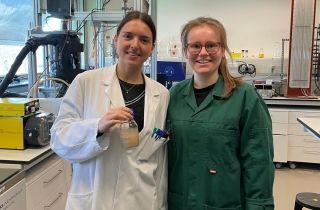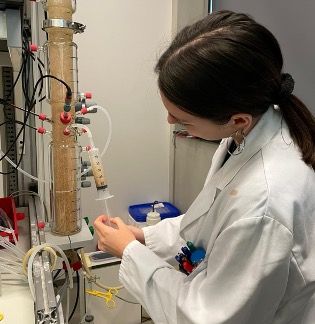SME Call: Entrepreneurs leading the way…
Closing the Gap: Empowering SMEs
Health~Holland has been actively supporting a variety of public-private projects (PPPs) for several years. Typically, these collaborations are led by knowledge institutions that also determine the research. However, this type of research is often not focused on bringing the innovation to the market, resulting in a gap in addressing the needs of innovative Small Medium Enterprises (SMEs; mkb-bedrijven) involved in the PPP. ‘Following an evaluation of Top Sector policy executed by the Ministry of Economic Affairs and Climate Policy and RVO, it became evident that greater integration with SMEs is needed within Life Sciences & Health PPPs,’ explains Jochem. Robbert further explains, ‘To address this concern, Health~Holland and hollandbio convened, posing the question: ‘How can the financial resources of Health~Holland contribute to foster innovation and support SMEs?’ ‘We gain no benefit from fundamental research unless it undergoes further development. Without this progression, it will fail to reach any patients.’ Subsequently, momentum surged.
SME and academic collaboration
‘The subsidy does not go to SMEs in its entirety. By also giving a part to the knowledge institutions, they will continue to participate’, says Jochem. Robbert explains: In a lot of cases, the startup or spin-off is already associated with a knowledge institution and is actively engaged in developing Intellectual Property and/or utilizing knowledge derived from academia. With the SME taking the lead, the focus broadens from fundamental research to enable a transition towards industrial applications.

Available grant
Regarding the available grant, Jochem reveals, ‘In 2023, we launched the pilot SME call with an initial budget of €3.3 million, of which €2.4 million for SMEs.’ However, due to a substantial influx of applications, €6 million was spend. Following the triumph of 2023, the allocation for 2024 was increased to €5 million, with €3.3 million designated for SMEs. Entrepreneurs meeting specified criteria can leverage these funds to secure grants for financing one existing or new full-time equivalent (FTE) dedicated to R&D within an industrial public-private partnership project.
‘Round one and round two were both pilot calls. We are still fine-tuning,’ says Jochem.
‘Round one and round two were both pilot calls. We are still fine-tuning,’ says Jochem. He continues, ‘For instance, in round one, we had separate applications for micro and small businesses, as well as for medium and large businesses, a structure we revised in round two. Additionally, we transitioned from four-year projects to only accepting applications for projects lasting up to two years. Moreover, we streamlined the processing timeline by eliminating the low threshold preliminary round and adopting a first-come-first-served basis. Certain alterations were embraced positively, while others were met with less enthusiasm, tells Jochem. ‘The insights and feedback we have received from various parties about the approach of both calls will be taken into account in the development of the next call. ‘I think the aim of the call is to create a model that facilitates submissions with a good quality and focuses on the business model of innovations,’ Robbert adds.
Tips and tricks
Robbert and Jochem emphasize that a successful application hinges on the thorough depiction of research quality and the demonstration of clear economic value, fostering impactful contributions to the Dutch economy and healthcare. ‘Ultimately, the goal of innovative products to reach the market so patients can benefit from the innovations by increasing or optimizing their health,’ underscores Robbert. Jochem elaborates, ‘This aspect is particularly scrutinized by the committee. Aisling and Ilaria from ExCulture penned a strong application, highlighting their company's contributions to both animal and human health as well as sustainability. Undoubtedly, they can offer valuable insights themselves on their experience with the application.’

